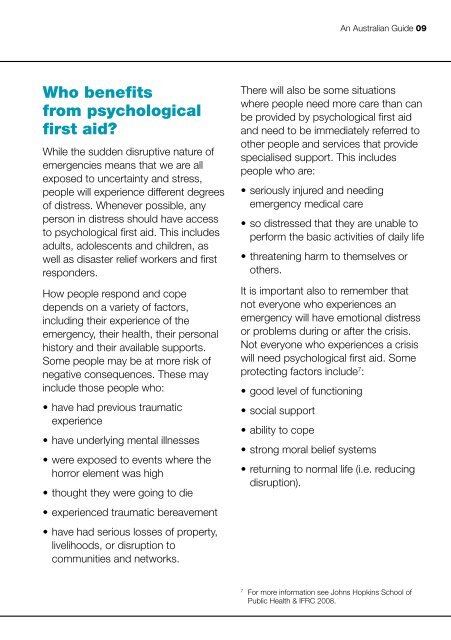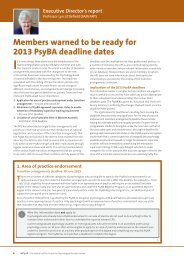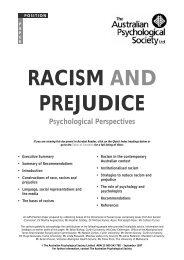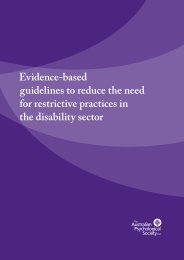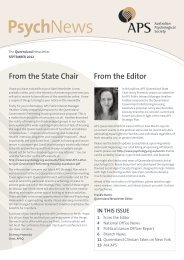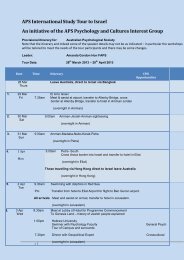Psychological First Aid: An Australian Guide
Psychological First Aid: An Australian Guide
Psychological First Aid: An Australian Guide
Create successful ePaper yourself
Turn your PDF publications into a flip-book with our unique Google optimized e-Paper software.
<strong>An</strong> <strong>Australian</strong> <strong>Guide</strong> 09Who benefitsfrom psychologicalfirst aid?While the sudden disruptive nature ofemergencies means that we are allexposed to uncertainty and stress,people will experience different degreesof distress. Whenever possible, anyperson in distress should have accessto psychological first aid. This includesadults, adolescents and children, aswell as disaster relief workers and firstresponders.How people respond and copedepends on a variety of factors,including their experience of theemergency, their health, their personalhistory and their available supports.Some people may be at more risk ofnegative consequences. These mayinclude those people who:• have had previous traumaticexperience• have underlying mental illnesses• were exposed to events where thehorror element was high• thought they were going to die• experienced traumatic bereavement• have had serious losses of property,livelihoods, or disruption tocommunities and networks.There will also be some situationswhere people need more care than canbe provided by psychological first aidand need to be immediately referred toother people and services that providespecialised support. This includespeople who are:• seriously injured and needingemergency medical care• so distressed that they are unable toperform the basic activities of daily life• threatening harm to themselves orothers.It is important also to remember thatnot everyone who experiences anemergency will have emotional distressor problems during or after the crisis.Not everyone who experiences a crisiswill need psychological first aid. Someprotecting factors include 7 :• good level of functioning• social support• ability to cope• strong moral belief systems• returning to normal life (i.e. reducingdisruption).7For more information see Johns Hopkins School ofPublic Health & IFRC 2008.


